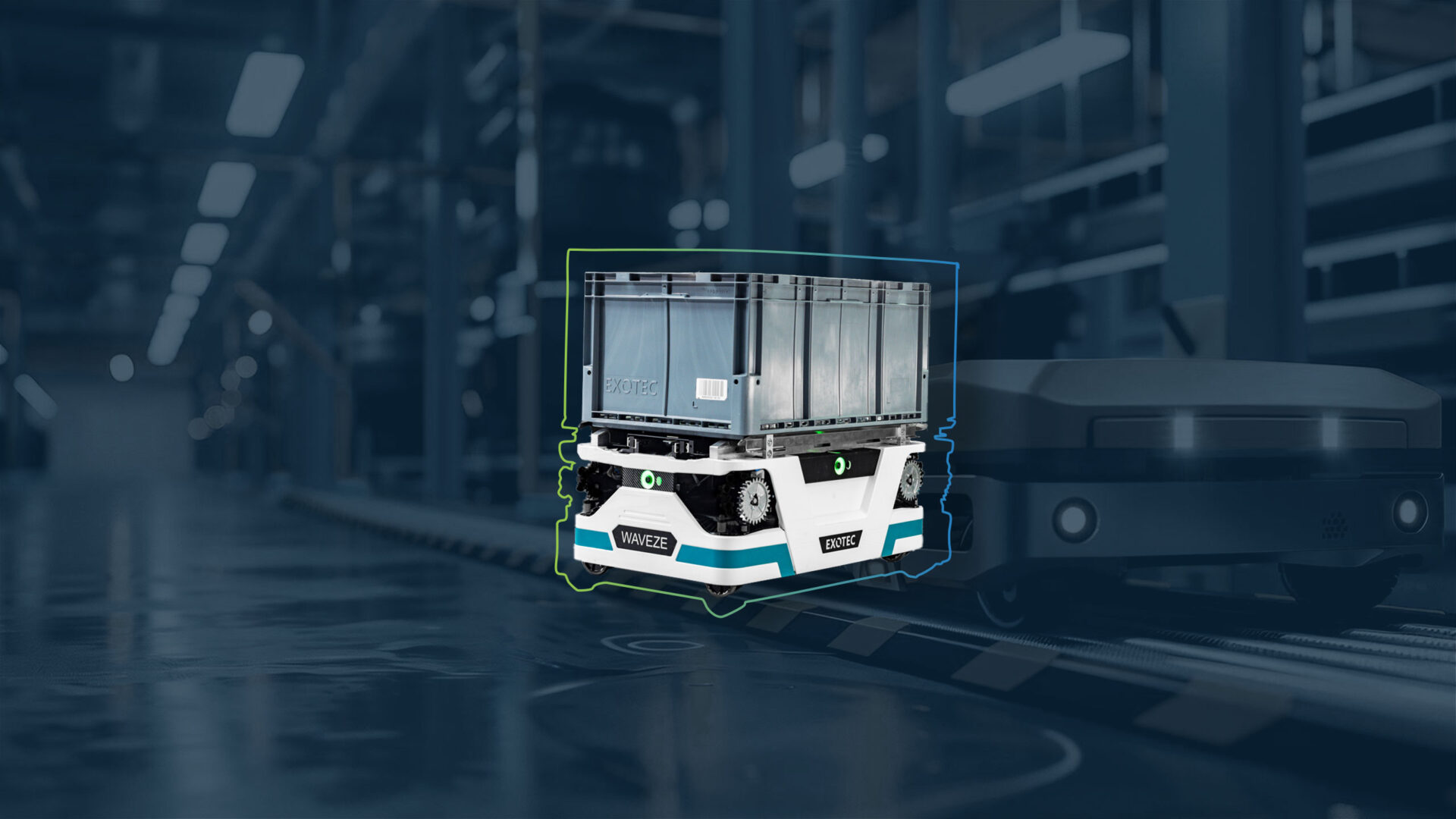
Automated storage systems: Exotec Skypod
The Exotec Skypod automated storage system combines modern technology with high flexibility - for greater…

Interview
Germany is currently facing several economic challenges. How can these be overcome with the help of artificial intelligence? Dr. Clemens Wolf answers this key question in the following interview. He also discusses the prerequisites needed to secure prosperity in Germany. He also discusses how the organization and systems need to be set up for this and how the necessary AI expertise can be acquired.
I am convinced that it is essential that we continue to develop modern AI technologies and use them more and more in operational business processes in order to secure our prosperity in Germany. We are currently facing three key challenges. In order to maintain our prosperity, our economy must grow – in other words, the turnover and profits of companies. At the same time, however, there will be fewer skilled workers available due to an ageing society. In addition, we have learned in recent decades that we can no longer manage the other resources we need for production in the same way as before.
Fewer workers must therefore produce more with less resource consumption and lower CO2 emissions in order for the economy to continue to grow and thus secure our prosperity. This can only be achieved by increasing efficiency. In Germany, we are very good at continuously developing existing technologies – for example, ever better combustion engines that require fewer and fewer resources to generate the same output. However, the development steps are getting smaller and smaller, meaning that the efficiency gains are getting smaller and smaller. We can counteract this with modern AI methods. To date, however, these technologies have hardly been used to make operational processes more efficient.
For direct operational business processes, everything must first be in place on the hardware side to record the information required for the use of AI. This means, for example, accessing various sensor data in real time via IOT devices. Even the best algorithm won’t help me without a data acquisition system that records the status of a machine as comprehensively as possible. In addition, the operational systems – be it MES, WMS or ERP – must be designed so that I can structure and process this data and incorporate it into my decision-making process.
And then I can use AI methods to develop models based on this, which I can use to create the ideal process parameters. And this allows me to achieve lower failure rates, better product quality or lower resource requirements, for example. This is because I can use AI methods to check how I can generate added value with the data by finding dependencies in the data, developing predictions and thus optimizing the processes in the respective system. This enables me to become so efficient that I can generate more sales despite the shortage of skilled workers. For example, I can order 20% more goods in the purchasing department with the same number of dispatchers. This is because the dispatchers hardly have to deal with the standard cases any more, only the outliers.
In the past, it was often feared that AI technologies would replace workers. However, due to the enormous shortage of skilled workers, we do not have the problem of an oversupply of labor. The problem is rather that workers have to perform too many tasks. They take too long to do this and therefore have problems fulfilling their responsibilities.
That’s why we need a rethink. Modern AI technologies will change the way I work and allow me to focus on the things that are important. And to do this, the systems I work with must be ready for me to use them to collect data and process it with common software. This software should first and foremost be built to provide support. This means that the AI makes suggestions that are confirmed by specialists before you go into full automation mode.
First of all, it has to be said that AI specialists are rare and not every medium-sized company can or needs to afford its own AI department. I believe that the trend is increasingly moving towards “analytics or AI as a service”. In other words, companies are specializing in taking over the entire area of using modern AI methods for other companies. The big problem with in-house solutions is that you need a heterogeneous team of AI specialists for a successful AI project. However, I don’t need as many people to operate the solutions and I also need people with different skills. For smaller companies, however, there will not be an infinite number of starting points where AI has great leverage. I therefore believe that it makes more sense for small and medium-sized companies to buy in this service than to build up the expertise themselves.

Head of Digital Operations
I look forward to an exchange on the topic and all aspects of AI and digital transformation. Please send me a message and I will get back to you as soon as possible.
You need to load content from reCAPTCHA to submit the form. Please note that doing so will share data with third-party providers.
More InformationYou are currently viewing a placeholder content from Turnstile. To access the actual content, click the button below. Please note that doing so will share data with third-party providers.
More InformationYou are currently viewing a placeholder content from Facebook. To access the actual content, click the button below. Please note that doing so will share data with third-party providers.
More InformationYou are currently viewing a placeholder content from Instagram. To access the actual content, click the button below. Please note that doing so will share data with third-party providers.
More Information